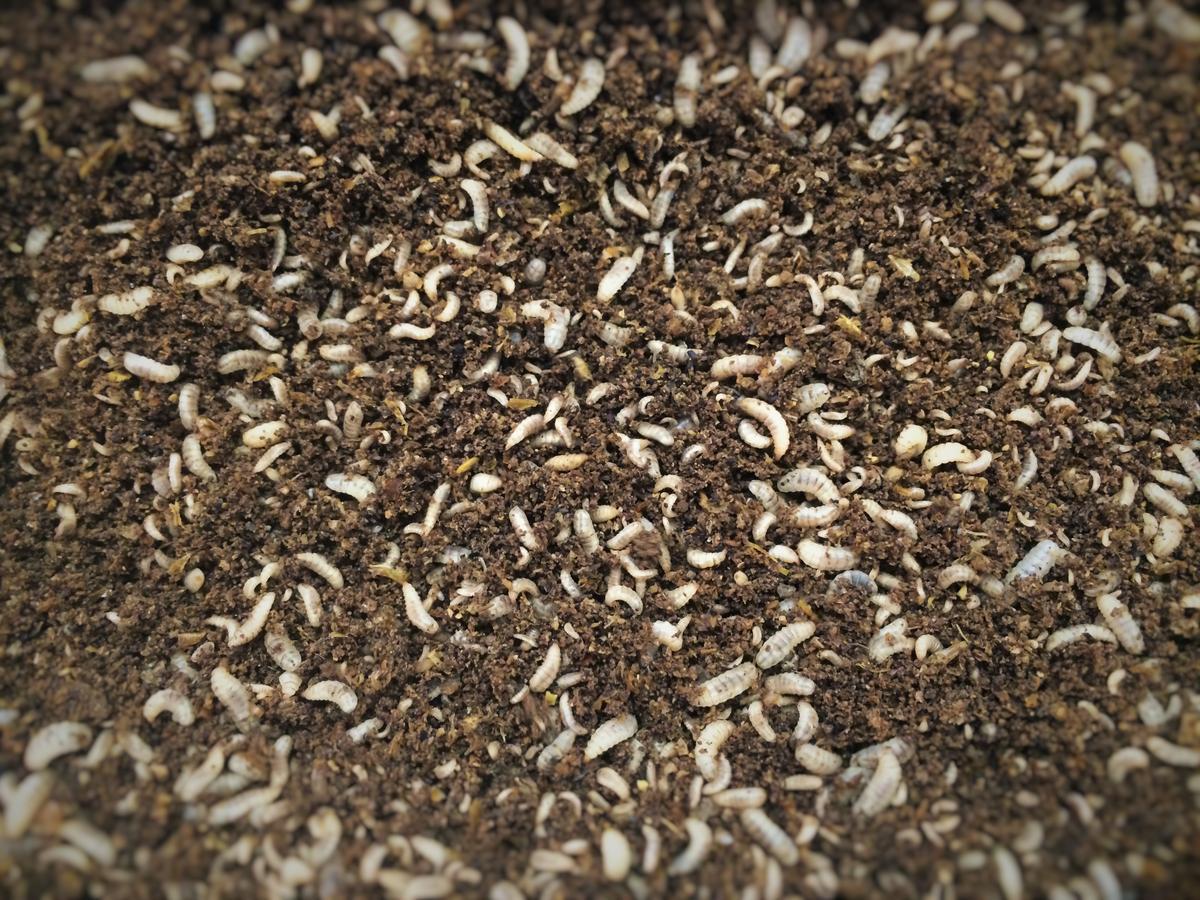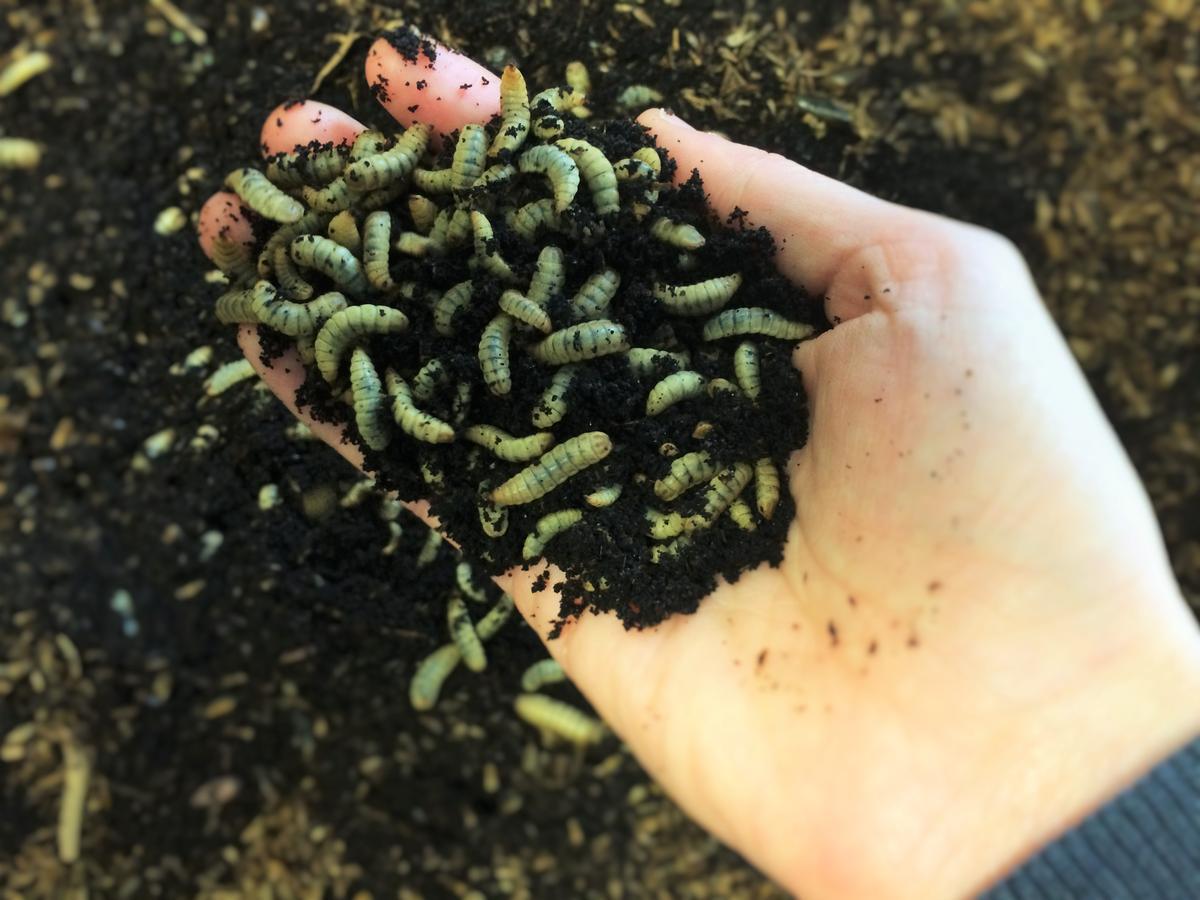Using insects to recover biodegradable waste
Project details
- Main leader : NextAlim
- Type of initiative : Individual initiative (company, etc.)
- Périmètre : 80 km autour de Poitiers
- Localisation : 2 Avenue Galilée, 86961 Chasseneuil
- Date de début : janvier 1921
Economy circular topics
- Industrial and regional ecology
- Recycling
- Eco-design
- Sustainable procurement
- Extending useful service life
- Responsible consumption
- Functional service economy
Our mission is to recover biowaste using insects
NextAlim is the French pioneer in the use of insects for industrial-scale biodegradable waste recovery, producing oils and proteins for animal feedstuffs and green chemistry, as well as organic fertilizer for agriculture.
We design and operate production facilities that use insects to:
- Process organic matter cleanly and efficiently to produce high quality fertilizer.
- Produce insect derivatives for animal feedstuffs and biosourced products (proteins, oils, chitosan, etc.)
Our approach fits perfectly with a locally-oriented circular economy strategy, featuring production units that enhance the range of recovery options in a territory, providing a genuine route for recycling unfit food into components useful to the local economy.
Twin challenges: waste and protein
By 2050, the Earth’s population will have reached 10 billion! The FAO estimates that feeding the world will require protein production to be increased by 50%. Pressure on the planet’s natural resources is intensifying, and whole ecosystems are under threat, as evidenced by collapsing fish stocks and deforestation in tropical forests.
Meanwhile, one third of the food produced worldwide will never be eaten. There is waste at every stage of the chain: on the farm, in the food processing industry, at large- and small-scale retailers and catering organisations... and of course in our own kitchens. In addition to raising ethical issues, this waste represents and economic loss and an environmental source of concern because of excess nitrates in water reserves, algal bloom, etc.
However, in nature, many insects play a role in recycling nutriments: as they digest biowaste, they transform it into substances of use to plants, while themselves becoming a food of choice for other animals. By restoring this relationship, NextAlim is contributing to an international effort to develop insect-based technologies, and the company has become a French champion for industrial insect farming
Insect farming - A novel approach to food recycling
Our organic waste and food industry by-product recovery process uses saprophagous insects (meaning they feed on decaying matter) that provide benefits to humans by producing components for animal feedstuffs and industrial processes.
In our bioreactors, Black Soldier Fly (BSF) larvae extract nutriments still present in organic matter and metabolise them into proteins, fats and other co-products. The residues from this digestion process form a saleable organic matter that can be used directly as an organic fertilizer.

This innovative process is a novel form of food recycling, offering an alternative to “energy” recovery (incineration or anaerobic digestion) and “organic” recovery (soil improvement). It is the only operational “materials” biowaste recovery process.
This French industrial-scale insect farming industry is a good example of the practical implementation of a circular economy in territories.
Qualitative benefits
- Biodegradable waste recovery
Black Soldier Fly larvae are able to recover a wide range of biodegradable waste and food co-products (such as unsold supermarket produce, catering waste and rejected production from agribusiness processes).
- Animal feedstuffs
Oils and proteins in BSF larvae are suitable for use in animal feed. They are a substitute for products such as fish meal or soy beans, respectively responsible for overfishing and deforestation in the Amazon and Indonesia.
- Green chemistry
The oils, proteins and chitin found in BSF larvae can be used (replacing oil-sourced products) as constituent ingredients of numerous biosourced products, such as biofuels, intermediate chemicals and even certain speciality chemicals.
- Fertilizer
Once digested by the larvae, the biowaste becomes a fertilizer with high agronomic value, suitable for use in organic farming.
Stages of the initiative
2013: Literature study and proof of concept
2014: Project planning and support from public authorities.
2015: Laboratory-stage development.
2016: Prototype development
2017: Pilot launch
2018: Industrial production
Driving forces:
- 1: Pressure on raw materials
- 2: Demand for biowaste recovery from the public and social institutions
- 3: Need for more rational agriculture
Obstacles:
- 1: Restrictive regulations
- 2: Finance for innovative industrial projects
- 3: Process industrialisation and optimisation
Areas of activity
- Agriculture
- Food
- Chemistry
- Recycling
Resources
- Food
- Biowaste
- Chemicals
- Material efficiency
- Compost
Technical resources
The facilities operated by NextAlim will enable profitable, ecologically viable production that also creates local jobs
Human resources
The nine members of the NextAlim team have a range of specialities, providing full-spectrum expertise in the fields of interest to NextAlim. The team is growing steadily.
Financers
- CGI
- ADEME
- REGION
- BPI




